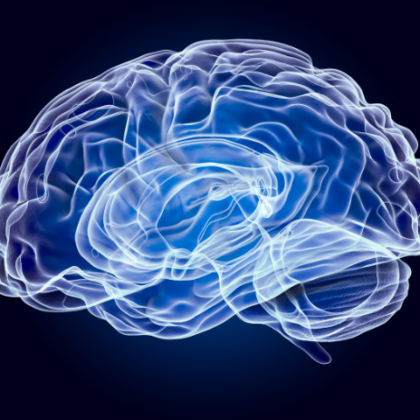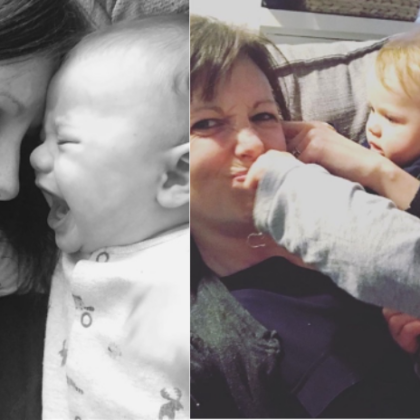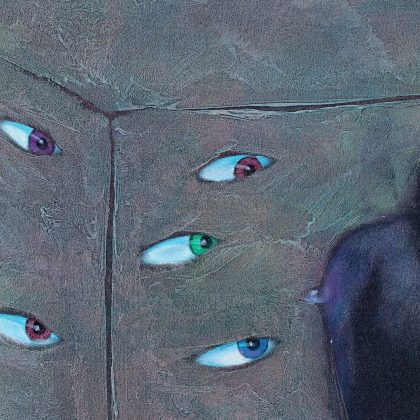Should all psychiatrists have ECG interpretation training?
Electrocardiogram (ECG) interpretation is not classically the psychiatrists’ natural habitat; yet, psychiatrists are required to obtain and interpret ECGs in certain clinical scenarios.

Electrocardiogram (ECG) interpretation is not classically the psychiatrists’ natural habitat; yet, psychiatrists are required to obtain and interpret ECGs in certain clinical scenarios.

The December BABCP Article of the Month is from the Cognitive Behaviour Therapist (tCBT)and is entitled Gender- and Sexuality-Minoritised Adolescents in DBT: A Reflexive Thematic Analysis of Minority-Specific Treatment Targets and Experience by Jake Camp, Andre Morris, Helen Wilde, Patrick Smith and Katharine Rimes.

Following the launch of Research Directions: Depression by Cambridge University Press, Editor-in-Chief Ian Hickie explains why a question-led and global approach will reveal new insights into mood disorders The launch of Research Directions: Depression represents ‘a chance to co-ordinate a real global effort in the field’, according to Editor-in-Chief Ian Hickie.…

I sat on a Zoom call with a psychologist from Edinburgh. My mental state, not my autistic son's, was in question.

The November BABCP Article of the Month is from Behavioural and Cognitive Psychotherapy and is entitled ”A more human approach … I haven’t found that really’: experiences of hoarding difficulties and seeking help” by Megan McGrath, Amy M.…

Sue Morgan completed a doctorate in German philosophy and worked in the city as a corporate tax lawyer before being forced to retire in 1998 because of a diagnosis of schizo-affective disorder.

Grandmothers often help the mother-child dyad, but when does this help start? In our lives, we may see many people increase helping behaviors towards a close friend or family member when she has a child to offset her increasing needs. From an evolutionary perspective, these kin and non-kin helpers (or ‘allomothers’) buffer maternal workloads to increase the health and survival of the mother-child dyad. One critical category of allomother that has been studied extensively is grandmothers because of their child-care expertise as well as their often close geographic proximity and emotional connections to the dyad. Much of the research has focused on this allomaternal help at weaning, or more generally, after the child is born. However, given recent evidence that maternal conditions during pregnancy can alter birth outcomes and increase the risk of postnatal morbidities, more evolutionary research is needed to explore prenatal allomaternal effects.

In recent years our team has been focusing on the relationship between adolescent brain development, cognition, and mental disorders.

War doesn't merely result in physical devastation. The mental and emotional aftermath, particularly from modern warfare that targets civilians, is profound. Civilians suffer alongside combatants, facing deaths, injuries, chronic disability, multiple displacements with uprooting of whole communities, loss of homes, destruction of essential services, infrastructure and environment. These traumatic experiences lead to a wide range of mental health issues, from depression, anxiety, PTSD, and substance abuse to family and collective trauma impeding personal and community recovery.

One of the few welcome developments associated with COVID-19 was a renewed interest in the mental health of healthcare workers.

I hope my wonderful boys won’t mind my sharing these contrasting photos to give hope to clinicians and those struggling after birth related trauma.…

I am bipolar. Diagnosed at age 18. Since I received my diagnosis of Bipolar Affective Disorder, I have relied on friends during my relapses when I am unable to look after myself and be responsible for my actions.

The September BABCP Article of the Month is from the Cognitive Behaviour Therapist (tCBT) and is entitled “Exploring the supervisory relationship in the context of culturally responsive supervision: a supervisee’s perspective” by Bianca Vekaria, Tessa Thomas, Peter Phiri and Margarita Ononaiye.…

The RCPsych Article of the Month for September is ‘Pharmacological management of psychopathology in people with intellectual disabilities and/or autism spectrum disorder' and the blog is written by author Professor Shoumitro Deb and the article is published in BJPsych Advances.

Puzzle was created during a admission It's a self-portrait, but the question is of what? Throughout my life, painting and the canvas have given me the the opportunity to let go and thus art has helped in my recovery.

The Akan people of Ghana, like many other collectivist cultures, have deeply engrained concepts of interdependence and support for each other. These concepts have been passed on for generations in the Adinkra symbols. Each symbol possesses an intrinsic meaning and represents virtues, values or beliefs critical to the Akan experience of life.

We are honoured that our paper “Longitudinal trajectories in negative symptoms and changes in brain cortical thickness: 10-year follow-up” has been chosen as RCPsych Article of the Month. During recent years, our team has been part of the “Programa de Atención a Fases Iniciales de Psicosis (PAFIP)”. PAFIP is a three-year early intervention initiative designed for individuals who have experienced their first episode of psychosis (FEP). Those who willingly joined this program received comprehensive care from a team of professionals, including psychiatric nursing, psychology, psychiatry, and social work. A decade after the onset of psychotic disorders, the PAFIP team reconnected with the participants for a follow-up evaluation.

The opioid crisis is a complex and multifaceted problem that affects millions of people around the world. It is not only a medical issue, but also a social, economic, cultural, and educational one. As psychiatry trainees from different parts of the globe, we wanted to share our perspectives on the opioid crisis and how to improve our practice and education in this field.

As Pictures Editor, I selected Peter Eddie's art for the August cover because of his intriguing drawings of faces and his enthusiastic use of any surface, here water cups. The rows of faces appear like an audience, looking out on us the viewer and reader of this journal.

Canada is debating expanding its medical assistance in dying law to include mental illness as the sole underlying condition. Initially planned for March 2023, the rollout has now been paused, yet the discussion continues.

The July 2023 edition of Muses – the arts blog from BJPsych International – features an article by Dr Olasunkanmi Onifade, Oral Medicine Consultant, Nigeria.

The July BABCP Article of the Month is from Behavioural and Cogntive Psychotherapy and is entitled “A pilot study of experiencing racial microaggressions, obsessive-compulsive symptoms, and the role of psychological flexibility” by Morgan Browning, Elizabeth Lloyd Richardson, Sidney Satterfield and Akshay Trisal.

BJPsych Bulletin is delighted to announce Dr Jonathan Monk-Cunliffe as the winner of the 2022 Praxis Editorial Award competition. Read his complementary blog post on his winning article: "How can we overcome health inequalities in psychiatry?"

The paper “How do you Behave as a Psychometrician? Research Conduct in the Context of Psychometric Research” by Pablo Ezequiel Flores-Kanter and Mariano Mosquera, published in The Spanish Journal of Psychology, has been chosen as the Editor’s Choice Article for July 2023.…

My life as I knew it changed in the autumn of 2019. I started a new job in a new city in a new country. To further tip the scale, my aisle-destined engagement began to fail that summer, with unresolved conflicts sporadically rearing their heads in five cities on three continents. That summer, my laptop (and all my precious writing and dissertation) was stolen on a flight from London to Lagos.

The RCPsych Article of the Month for June is ‘Breaking out of the citadel: social theory and psychiatry' and the blog is written by authors Rob Poole and Catherine A. Robinson and the article is published in BJPsych Bulletin.

The June BABCP Article of the Month is from the Cognitive Behaviour Therapist (tCBT) and is entitled “Moving forward with the loss of a loved one: Treating PTSD following traumatic bereavement with cognitive therapy” by Jennifer Wild, Michael Duffy and Anke Ehlers.…

From my Māori world view, wairua or spirituality is our essence. Everything else flows out from there. If we don’t get spiritual wellbeing right, other approaches will have only limited benefit. It seems to me that psychiatry offers treatments that are focused on the brain, addressing physical and psychological wellbeing. I notice that western talking therapies often don’t address spiritual values that are of critical importance to Māori and other Indigenous peoples.

This research with a vulnerable clinical population, who are experiencing significant distress, gives us an important insight into whether music therapy may be helpful for patients and staff on NHS inpatient psychiatric dementia wards by reducing distress and improving wellbeing.

As pictures editor, I selected Peter Grundy's art for the February cover because of his striking designs that simply portray complicated issues. Peter Grundy is one of the world's leading information designers. Peter Grundy states his designs and illustrations aim to turn complex information into simple visual stories in a world of modern messiness.

The April edition of Muses – the arts blog from BJPsych International – features an interview with Tunmise Kuku, a Nigerian radio broadcaster and mental health advocate who has been open about her diagnosis of Type II Bipolar Affective Disorder. Three years ago, she took a deliberate career break to write Living Mindfully: A Journey of Being, a memoir that draws from her experiences and stories. It has been lightly edited for length and clarity.

The March BABCP Article of the Month is from the Cognitive Behaviour Therapist (tCBT) and is entitled “‘It’s been quite a poor show’ – exploring whether practitioners working for Improving Access to Psychological Therapies (IAPT) services are culturally competent to deal with the needs of Black, Asian and Minority Ethnic (BAME) communities” by Afsana Faheem.…

Q&A with author and internationally renowned psychiatrist, Lynne Drummond about OCD & her upcoming Cambridge Festival event.

No writer’s life and work has had a more profound impact on me than that of Bessie Head, a woman who was born in a psychiatric hospital in South Africa, raised in foster care and later exiled to Botswana, a country she simultaneously loved and hated. By the time she died in 1986, Head had published several novels, including A Question of Power, which she described as “almost autobiographical” in its account of the life of Elizabeth, a woman in the midst of a psychological crisis against the backdrop of her country’s political struggles. I am afraid of readingthis novel againbecause of how vividly it evokes a memory from my medical school days, of a psychiatric evaluation with a patient exhibiting dissociation symptoms and who was later diagnosed with comorbid schizophrenia and dissociative identity disorder.

In the March edition of Magnify – the Journal Club blog from BJPsych – Dr Angharad de Cates and Dr Mariana Pinto da Costa chair a journal club in collaboration with the WPA, discussing ‘Efficacy of interventions to reduce coercive treatment in mental health services: umbrella review of randomised evidence’.

The RCPsych Article of the Month for February is ‘Delivering mental healthcare to patients with a depressive disorder alongside a life-limiting illness’ and the blog is written by author, Daniel Hughes and the article is published in BJPsych Bulletin.

In this edition of Muses – the arts blog from BJPsych International – Dr Tim McInerny, Pictures Editor, BJPsych International introduces Albert, the artist whose portrait is on the cover of the February 2023 issue of BJPsych International.

Author of Just as Deadly, Marissa A. Harrison, answers 3 questions for International day of Women and Girls in Science

Interview with Professor Charlotte Markey, expert in body image, about her career in Psychology.

The January BABCP Article of the Month is from Behavioural and Cogntive Psychotherapy (BCP) and is entitled “Echoes of shame: a comparison of the characteristics and psychological sequelae of recalled shame experiences across the voice hearing continuum” by Rachel Brand, Rosalie Altman, Carla Nardelli, Maxine Raffoul, Marcela Matos and Catherine Bortolon Over the last few years, we, among many other researchers, have been involved in the developing field of clinical and research work on trauma-related voice-hearing (hearing voices without the corresponding external stimuli, also known as auditory verbal hallucinations).…

The RCPsych Article of the Month for January is ‘Ethnic inequalities in involuntary admission under the Mental Health Act: an exploration of mediation effects of clinical care prior to the first admission’ and the blog is written by authors Daniela Fonseca Freitas, Susan Walker, Patrick Nyikavaranda, Johnny Downs, Rashmi Patel, Mizanur Khondoker, Kamaldeep Bhui and Richard D. Hayes. The article is published in The British Journal of Psychiatry.

The January edition of Muses – the arts blog from BJPsych International – features a review of a memoir about mental illness and recovery by UK-based Nigerian psychiatrist Victoria Olasegha.

The paper “How Chronological Age, Theory of Mind, and Yield are Interrelated to Memory and Suggestion in Young Children” by Nieves Pérez-Mata, Amparo Moreno, Margarita Diges, and Miriam Peláez, published in The Spanish Journal of Psychology, has been chosen as the Editor’s Choice Article for January 2023.…

The paper “Validation of the Spanish Version of the Generic Conspiracist Beliefs Scale” by Angelo Fasce, Diego Avendaño, Neil Dagnall, Andrew Denovan, and Álex Escolà-Gascón published in The Spanish Journal of Psychology has been chosen as the Editor’s Choice Article for December 2022.…